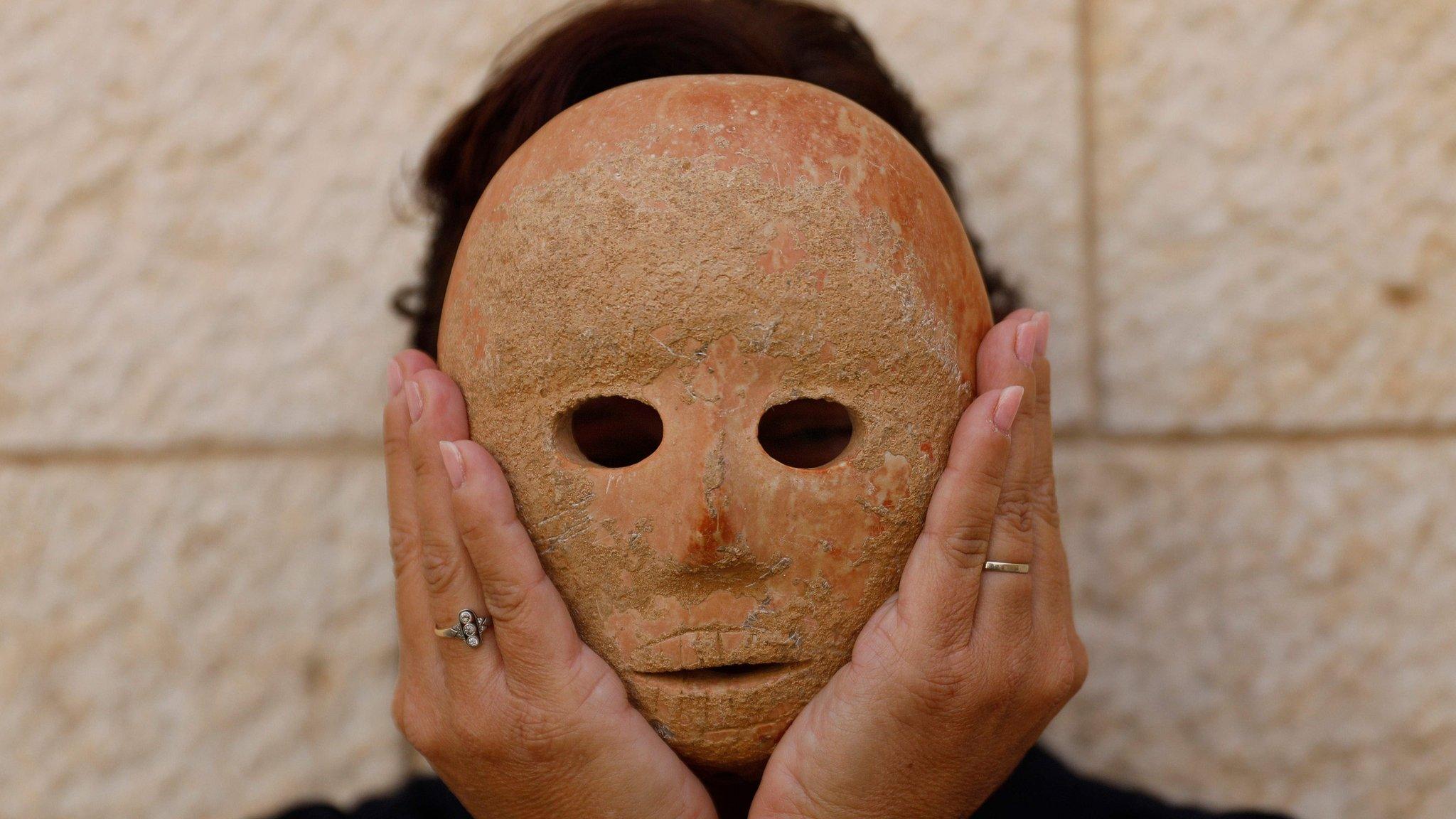Israeli researchers brew 'ancient beer' with antique yeast
- Published
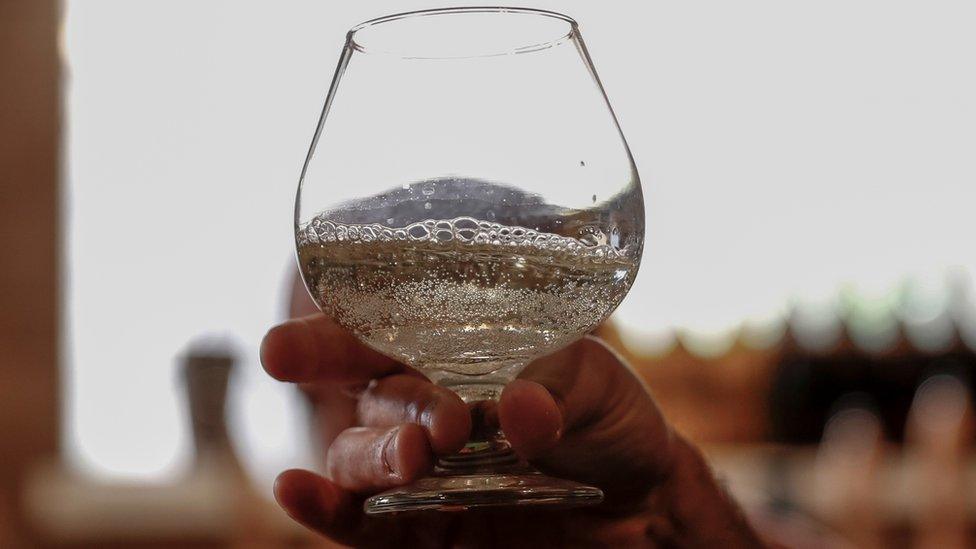
Israeli researchers have unveiled a "breakthrough" beer made from ancient yeast up to 5,000 years old.
Researchers from the Antiquities Authority and three Israeli universities extracted six strains of the yeast from old pottery discovered in the Holy Land.
It is believed to be similar to beverages enjoyed by the Pharaohs of ancient Egypt.
The team said it hoped to make the drink available in shops one day.
"I remember that when we first brought out the beer we sat around the table and drank... and I said either we'll be good or we'll all be dead in five minutes," said Aren Maeir, an archaeologist with Bar-Ilan University. "We lived to tell the story".
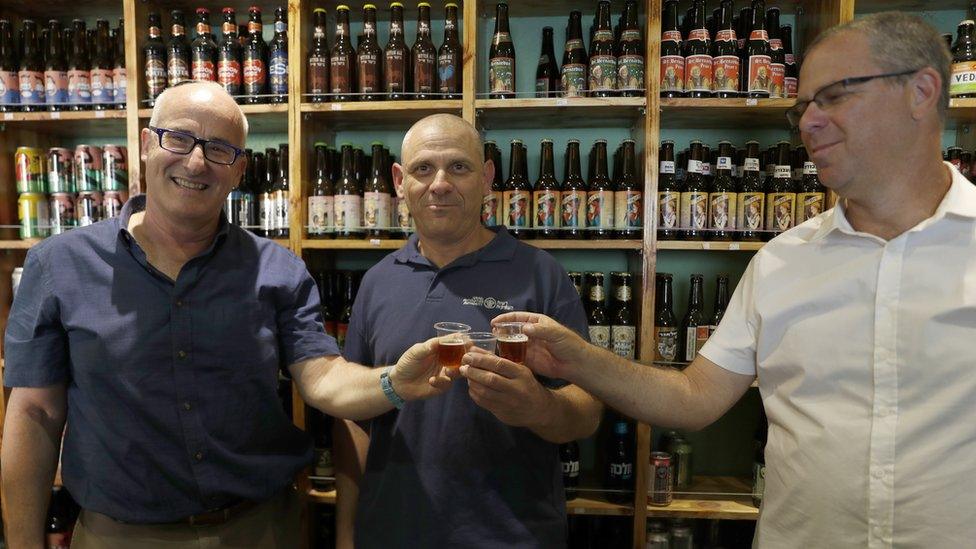
Researchers from Israel's Antiquities Authority, and from Tel Aviv, Hebrew and Bar Ilan universities all took part in the project
In the region's past, beer was a basic commodity - like bread - enjoyed by the entire population, regardless of status or age. Since there was always a risk of contamination with water, fermented beer and wine were considered much safer to drink.
The beers were usually made from a mix of grains and water, baked and left to ferment in the sun. Fruit concentrates may also have been added for flavour.
Ronen Hazan and Michael Klutstein, two biologists at Hebrew University, came up with the idea to create this latest batch using antique yeast.
With the help of beer expert Itai Gutman, the team used modern techniques to create a drink similar to wheat beer, with 6% alcohol content, and a mead with 14% strength.
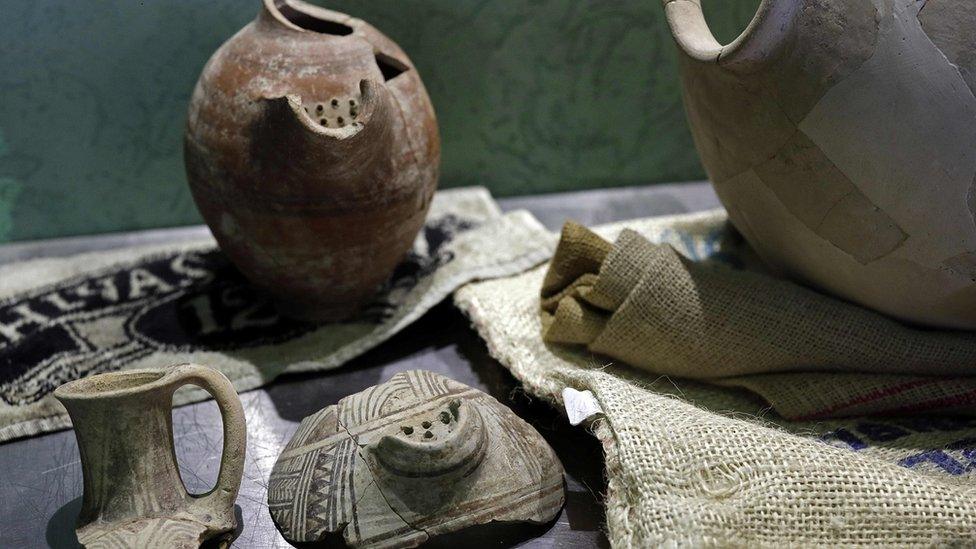
The yeast was taken from 21 shards of beer or wine vessels discovered in the Holy Land
Mr Gutman previously recreated a beer used a genetically modified strain of wheat dating from 10,000 years ago. However researchers say this is the first time alcohol has been created from ancient yeast.
"The greatest wonder here is that the yeast colonies survived within the vessel for thousands of years - just waiting to be excavated and grown," Dr Hazan told reporters.
The team says it hopes to brew more beer using ancient techniques instead, and is looking for investors to explore commercial production.
"Aside from the gimmick of drinking beer from the time of King Pharaoh, this research is extremely important to the field of experimental archaeology," said Dr Hazan.
"By the way, the beer isn't bad."
- Published10 May 2019
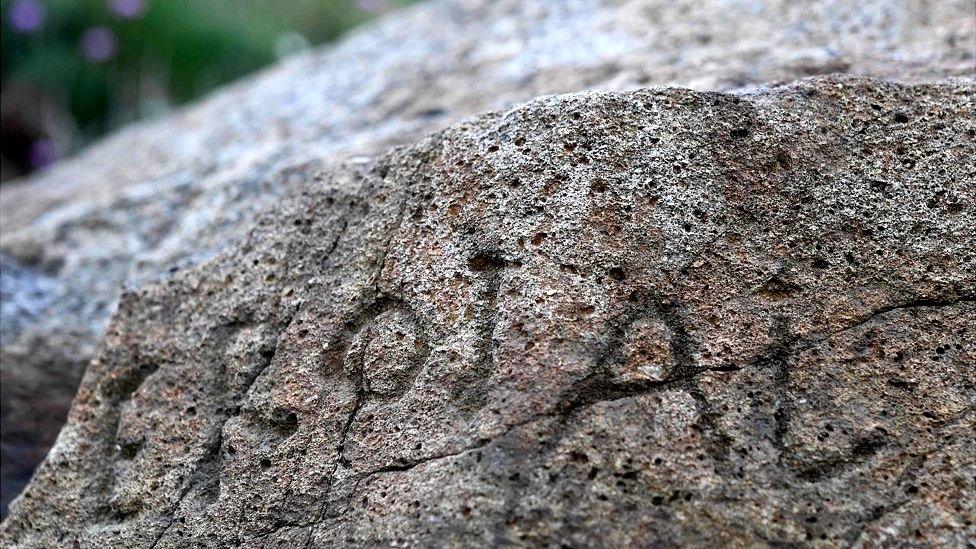
- Published9 May 2019
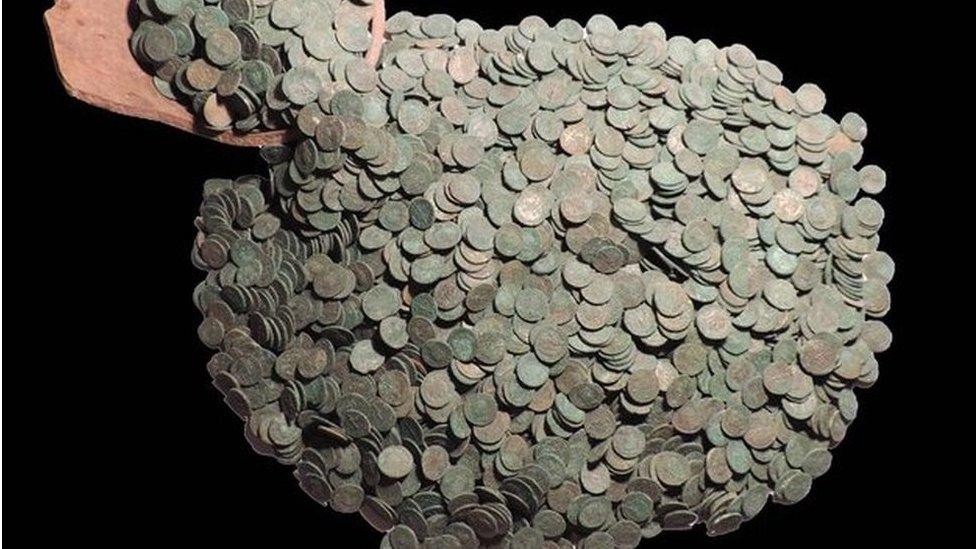
- Published9 May 2019
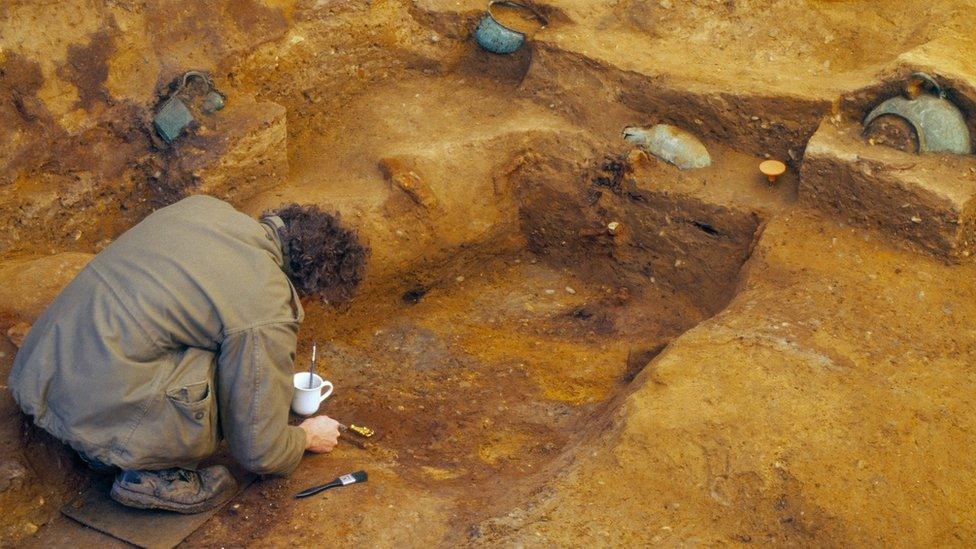
- Published29 November 2018
